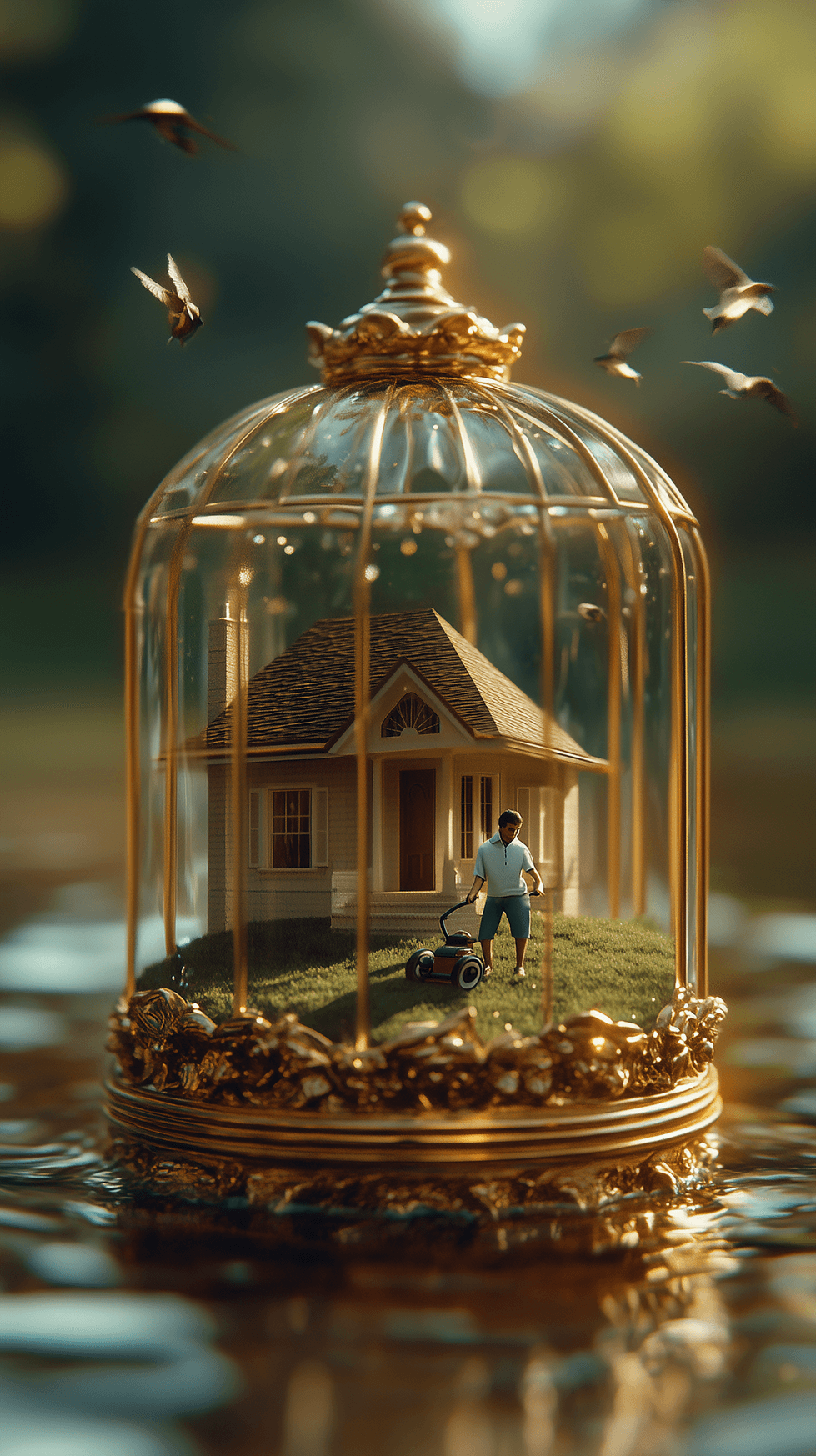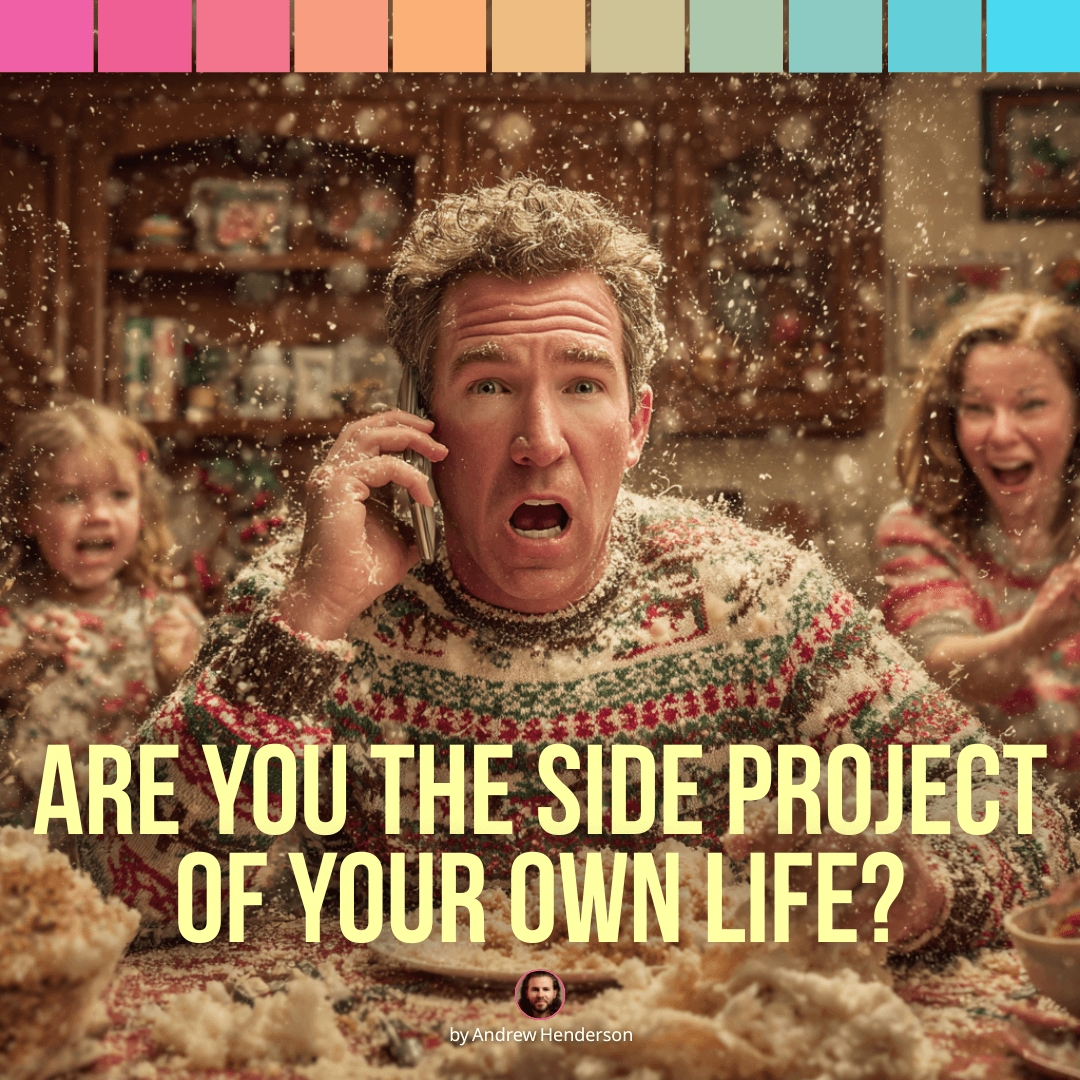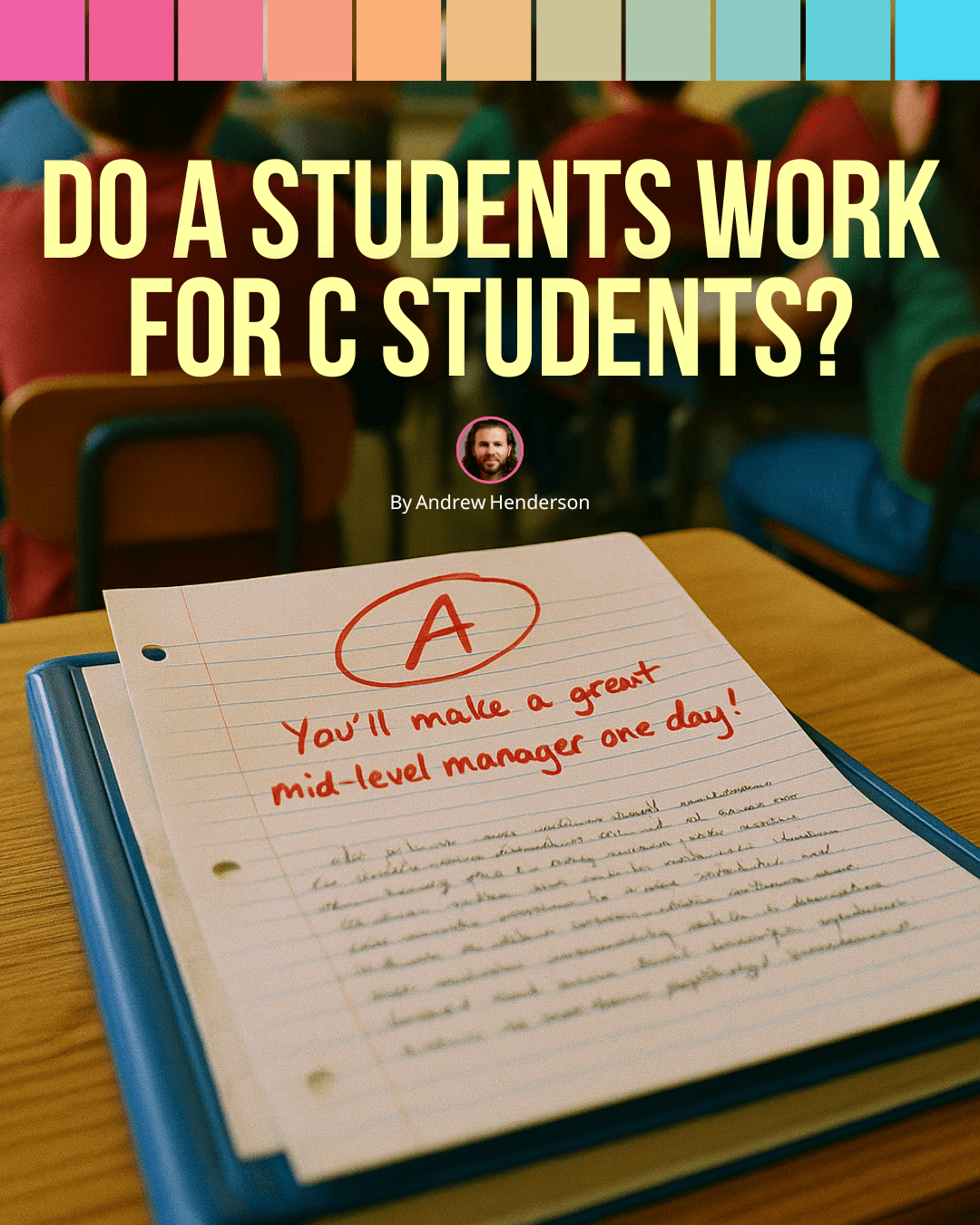
Back in 2019, I came into a decent chunk of money thanks to a stock buyback at work. Flush with unexpected cash, my wife and I did what we thought we were supposed to—we started house hunting. We put in a couple of offers. Nothing stuck.
Then I got laid off—corporate restructuring, of course.
Suddenly I had money, but no job. And just after I landed a new one, COVID hit. You know what happened next: the housing market went nuclear. People were offering $200k over asking, waiving every contingency just to own a three-bed bungalow with popcorn ceilings and a termite problem.
It wasn’t a market. It was a high-stakes real estate casino, where everyone acted like they were playing with Monopoly money.
After a couple of years of torturing ourselves, we backed out.
By 2022, the homes we looked at in 2019 had doubled in price. You know what didn’t double? My salary.
Inflation swallowed my raises whole. We were watching our money closer than ever, and yet the dream of owning a home—a stable, private space that felt like ours—kept slipping further away. I was furious.
I felt like I’d been on the one-yard line—and someone picked me up and dropped me in my own end zone.
For years, I struggled with that. I blamed the Fed, Fauci, BlackRock, China—anyone and everyone who seemed to benefit while the rest of us got priced out of the life we were told to chase.
But the truth was undeniable: the timing just never worked out.
When I had the money, I didn’t have the job.
When I got the job, a global crisis hit.
Maybe it’s because I live in Southern California—one of the most expensive housing markets in the country—but even doing everything right, I couldn’t crack the code. I felt like I’d missed my shot at stability. Like life had taken a hard left, and I was stuck in a lane I never meant to drive.
But in hindsight, not buying a house might’ve been the best possible outcome.
Because in 2024, I lost my job. Again.
And if I’d drained my savings on a down payment, I’d be stuck—house poor, stressed, and forced to say yes to anything that paid the mortgage.
Instead, I had breathing room. And when I left behind a toxic company culture, I finally had the space to ask: What do I want to build for myself?
So I did. I launched my own business.
That home I never bought? It would’ve been my golden cage. A 30-year debt contract dressed up as “security.” The kind of trap that makes you say yes to jobs you hate and no to the life you actually want.
Now, I work for myself. I take my dog on long walks in the middle of the day. I turn off my phone. I go to the beach with my wife, and no one asks me for an “urgent update” on something that won't matter tomorrow.
I'll be 41 next month, and these past five years have been some of the hardest—and most formative—of my life. Who would've thought at this age? But throughout these challenges, I've kept coming back to a story I once read:
There was a farmer in a small village with one horse. His neighbors told him how lucky he was to have such a valuable animal.
“Maybe,” the farmer replied.
One day, the horse ran away. The villagers cried, “What terrible luck!”
“Maybe,” he said.
Days later, the horse returned—with several wild horses in tow. “Amazing fortune!” they said.
“Maybe,” the farmer replied.
Then, the farmer’s son broke his leg riding one of the wild horses.
“How tragic,” they said.
“Maybe.”
Days later, the army came to draft all able-bodied young men. His son was spared.
“Such a blessing!” they said.
“Maybe,” the farmer replied.
That story stuck with me.
I'm not saying I'll never buy a home—it's still a goal I have. I'm saying that if you're feeling behind or boxed out—just remember, sometimes the Dutch door that slams in your face might actually be saving you from a lifetime of quiet desperation in a Pinterest-worthy prison.
Because sometimes freedom looks a lot less like a picket fence, and a lot more like a Tuesday with no Zoom calls.
So, will not buying a home turn out to be the worst financial mistake I ever made—or the best decision of my life?
Maybe.


